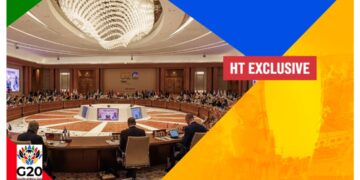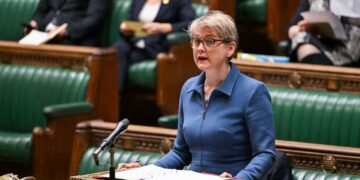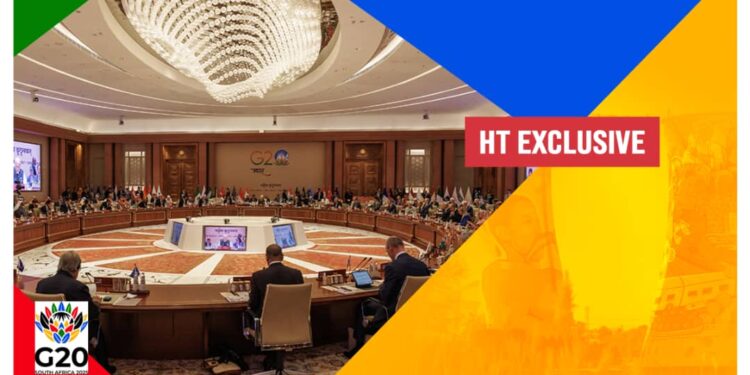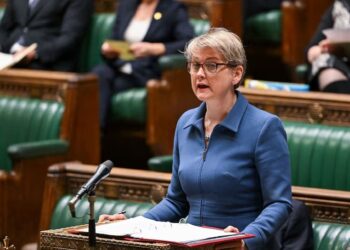By Enyichukwu Enemanna
The hosting of G20 Summit in Africa for the first time since the Group’s creation in 1999 can best be described as a big deal for the continent, not just for the magnitude of the meeting but the political capital it confers on Africa as an active participant in the discourse to shape global economy as against mere observer. The diplomatic gathering in Johannesburg from November 22-23, 2025 also winds down the continent’s one-year rotational presidency which was handed to South Africa December 1, 2024. That again was the first time Africa was occupying the exalted position in the bloc that makes up more than 80% of the global economy and two-thirds of the world population. However, Africa’s leadership of the G20 was largely racked by torrents of sanctions and boycotts by the United States, an influential member of the Group.
Little did President Cyril Ramaphosa settle down to chart new frontiers for the G20 from African perspective before the January 2025 Donald Trump’s assumption of office for a second term as the US leader. This marked the beginning of a turbulent yet fulfilling experience in Africa’s first shot at the Group’s helm of affairs. Washington’s indifference was largely fuelled by Pretoria’s views over global governance, international and legal institutions. Land administration policy which Trump claimed was targeted at white farmers in South Africa (Afrikaners) has also been at the centre of frosty diplomatic relations between both countries, that also saw the expulsion of South African Ambassador to the United States, Ebrahim Rasool as well as withdrawal of aids from South Africa.
The decision by South Africa in December 2023 to sue Israel, a key ally of the United States before the International Court of Justice at The Hague, accusing it of committing genocide in Gaza over its brutal war in which over 61,000 have been allegedly killed also drew Washington’s irk against Pretoria. The diplomatic spat largely whittled down the influence of South Africa’s presidency especially with the political machinery the US wields in multilateralism vital to solve global challenges. Also, Washington’s decision to boycott G20 meeting of foreign ministers that took place in South Africa February was not just a symbolic protest but a thumb-down that raises questions of consensus on the decisions reached. But despite these challenges which came at a period of Trump’s “America First” policy, South Africa as Africa’s only member state made significant efforts in advancing the interests of developing nations at the boardroom with the world’s richest countries.
The High Points
Lack of the United States’ cooperation and support did not totally leave South Africa helpless in optimising the rare opportunity to bring to the front burner issues that have remained of concern to its neighbours. Under the theme, “Solidarity, Equity and Sustainability”, the presidency was able to push the agenda of developing countries into the central focus of the G20, aiming to ensure that the voices and priorities of emerging and developing economies shape a fairer, more resilient global future. For Africa, it has remained of utmost concern that the global system still favours the wealthy, leaving developing countries trapped in cycles of debt and struggle.
With fewer resources to invest in critical areas like poverty reduction, healthcare, and education, not-too-privileged countries are denied the chance to unlock their full potential. Climate Change has deepened these injustices, stripping people of dignity and opportunity. South Africa has stood its ground that Global South, home to over half the world’s population and immense natural resources, must have a stronger voice.
The presidency has championed climate, sustainability and just energy transition. Africa contributes less than 4% of global greenhouse gas emissions, yet it is the continent most vulnerable to the impacts of climate change. From devastating droughts in the Horn of Africa to intense cyclones in Southern Africa and loss of farmlands to erosion disaster in West Africa, the climate crisis has posed existential threat. South Africa’s presidency of G20 has championed sustainability rooted in climate justice. This means acknowledging the historical responsibility of industrialised nations for causing the climate crisis and demanding that they lead the transition to a low-carbon future. Key priorities for the bloc under this agenda include, delivering on climate finance, promoting a just energy transition and investing in climate adaptation.
The presidency has also paid due attention to the issue of debt sustainability which has remained quite challenging for Africa. Through the G20 Finance Track, there is now an expanded African engagement, advancing policy issues of direct relevance to Africa and the launch of a legacy framework to deepen cooperation. Throughout 2025, the Finance Track’s focus on Africa has grown significantly, with multiple ministerial meetings, working groups, and workshops addressing Africa’s economic and financial challenges. These initiatives have culminated in the adoption at the recently concluded G20 Finance Ministers and Central Bank Governors meeting on 15-16 October in Washington DC, of the G20 Finance Track Africa Engagement Framework (AEF) for 2026-2030.
The office also afforded President Ramaphosa opportunity to showcase his country and indeed Africa as tourism, business and investment prospects especially with the hosting of over 120 G20-related meetings in the last one year. He has attempted to amplify the African voices with regards to debt and finance, industrialisation and job creation through digital skills, connectivity, AI governance and leveraging technology for inclusive development.
Major Criticism
The presidency has been criticised for a number of issues, particularly for not living up to its pledge at the beginning of 2025 to push for fairer, more transparent sovereign credit ratings. Credit rating agencies that are always aligned to West, including Moody’s, S&P Global Ratings and Fitch Ratings have been accused of not being neutral, instead sitting at the centre of driving the high cost of borrowing in Africa. Their judgements directly shape investor sentiment, access to finance and the interest rates countries pay when issuing bonds. For developing countries, especially in Africa, ratings determine whether a government spends its resources on debt servicing or on development needs such as schools and hospitals.
On October 13, a total of 165 organisations in a letter addressed to Ramaphosa accused him of failure to make progress on debt sustainability issues since assumption of office as President of the G20, citing inability to push for “radical reforms” of debt restructuring processes, support the creation of both an African Credit Rating Agency and a “Borrowers Club” to facilitate cooperation among debtor countries. “While this year’s G20 has been put forward as an ‘African G20’, there is no evidence that any progress has been made on the debt crisis facing Africa and many other countries worldwide during the South African presidency,” the letter signed by the European Network on Debt and Development (Eurodad), Amnesty International, the Malala Fund and ActionAid International, among others said, adding that it was not too late for the country to leave its mark.
Expectations from First G20 Summit
Analysts are of firm belief that the Summit, which will have most powerful economic countries represented by world leaders, finance ministers, and central bank heads will raise Africa’s stake in global affairs as South Africa and AU will join forces to drive the recalibration of discussions on climate finance, debt relief, and trade partnerships.
The Summit will focus on three major points: Solidarity, Equality and Sustainability which is the theme of South Africa’s presidency of the Group. It will highlight the need to strengthen multilateral cooperation and address global inequalities, encourage shared prosperity and reduce the gap between rich and poor as well as talks on climate change and advancing green development.
Despite its 1.4 population, and housing some of the world’s fastest-growing economies, Africa has not been vocal enough in being part of decisions affecting trade agreements, debt restructuring, and climate adaptation funding. This gathering will significantly alter this dynamic. South Africa has prioritised bringing African perspectives into every negotiation room, pushing for reforms that reflect the continent’s realities and aspirations. It will also serve as an opportunity for African leaders to highlight the continent’s vast potential. Rich in natural resources, driven by a young and expanding workforce, and boosted by rapid technological growth, Africa stands out as one of the most promising investment destinations in the world.
Also expected are trade negotiations that will focus on easy market access and the provision of value-added benefits. African leaders have long sought for fairer terms that will enable the continent to move beyond exporting raw materials and develop its manufacturing capacity. This will include advocating for reduced tariffs on processed goods and greater technology transfer to support industrialisation on this continent.
If successful, the Summit will unlock billions in climate adaptation funding for vulnerable regions, which Africa is the chief, accelerate debt relief negotiations that free up resources for public investment, strengthen trade partnerships that create jobs and promote economic diversification as well as position Africa as a key voice in future global governance reforms. Most importantly, G20 Summit in South Africa will send a powerful message to the world that gone are the days when Africa was just an onlooker in global decision-making. The continent is asserting its right to shape policies that affect its people, economies, and environments.




































